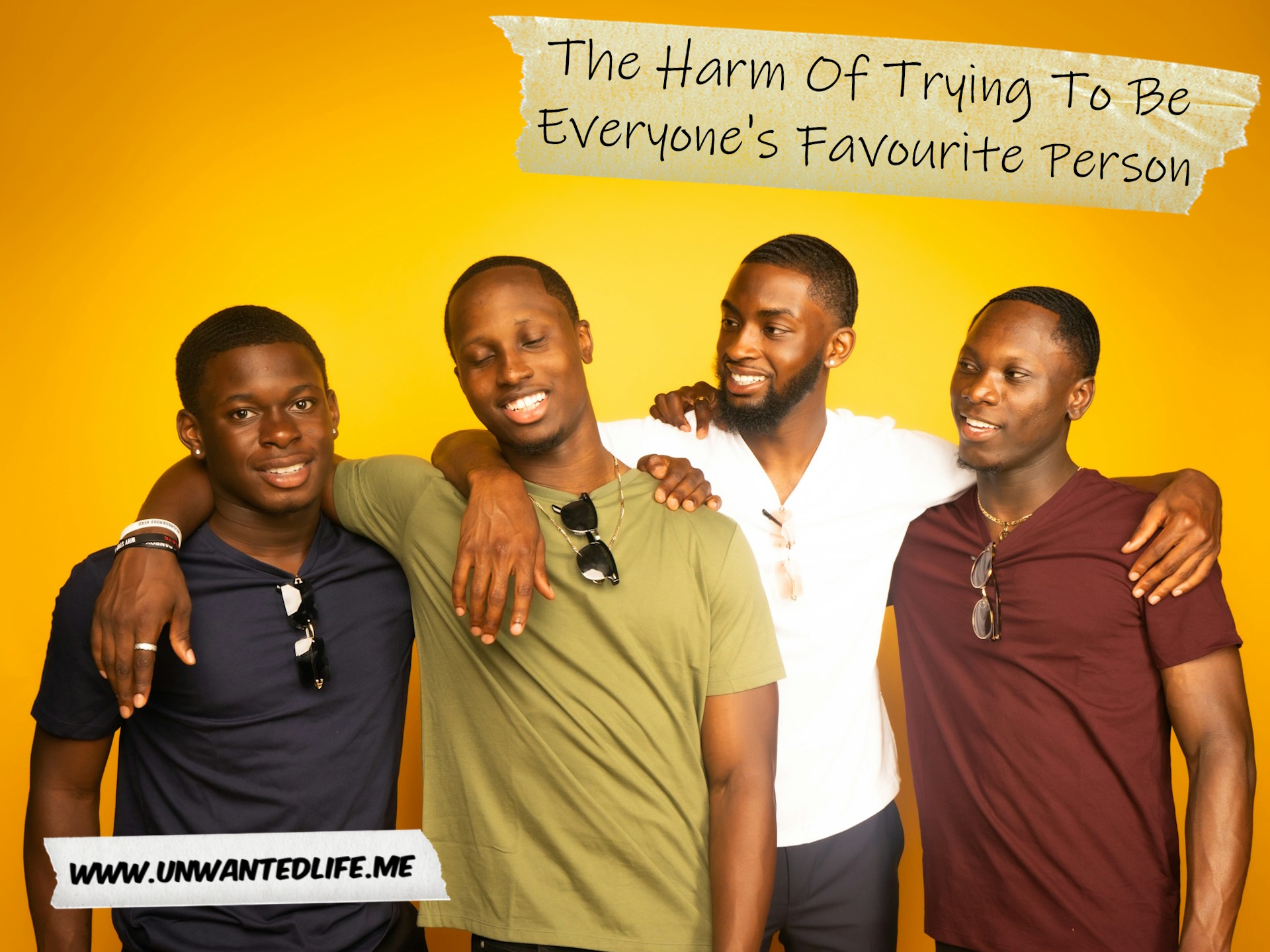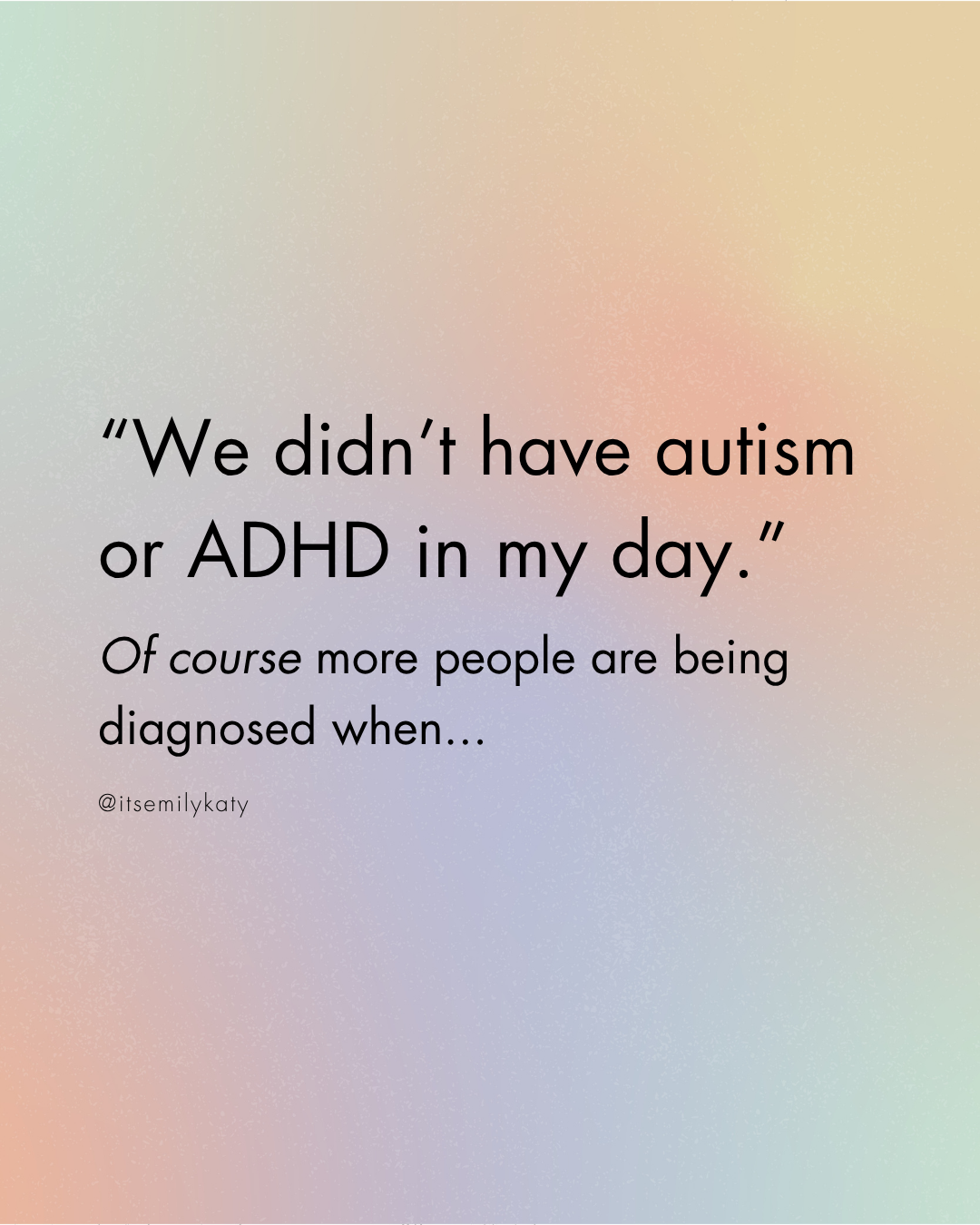One thing that frequently arises with the clients I work with is the need to be liked by everyone, even though this need is causing great harm to their wellbeing. As a former people-pleaser, I wanted to explore this area in more detail and understand why some people try to be everyone’s favourite person. This article is the result of that. I hope you find it interesting.
What Does It Mean To Want To Be Everyone’s Favourite Person?
Simply put, it’s people-pleasing. As such, living life to please others will mean we’ll never be happy (Chui, 2025). Wanting to be liked by others can and will help us connect with other people, but the need to be liked is a road to stress and anxiety (Lovering, 2022).
Although humans are a pack animal, we are still selfish as a species, as we’re all just looking out for ourselves (Chui, 2025). Because, for the most part, we want to be everyone’s favourite person in an effort to make ourselves feel better. It’s our internal discomfort that we’re really trying to address.
In that sense, it’s a lot like the spotlight effect, where we can’t help but overvalue our roles in other people’s lives. We may be the main character in our life story, but in the majority of people we interact with, or don’t, we’re just an NPC.
The Costs Of Trying To Be Everyone’s Favourite Person
Wanting to be liked by everyone is a common human desire, rooted in our need for belonging and social validation. It used to be what would keep us safe in the harsh realities as humans first evolved, and is evident in a lot of pack animals. While it’s natural to crave acceptance, an intense need to be liked can stem from insecurity, anxiety, or people-pleasing tendencies.
So while being everyone’s favourite person might sound appealing on the surface, it will come with a surprising number of challenges and downsides.
Emotional exhaustion and burnout
When we’re trying to be everyone’s favourite person, people will tend to rely on us heavily for emotional support, validation, and attention. There’s nothing wrong with creating a safe space so people feel comfortable talking to us, but trying to be everyone’s favourite person is different. This can be incredibly draining, leading to feelings of exhaustion and burnout as we’re constantly trying to meet the needs and expectations of others.
Trying to be everyone’s favourite person is an impossible task that will set us up for failure, and when we fail, we’ll beat ourselves up for it.
Don’t get me wrong, it does make sense in some situations to be concerned about whether someone likes us, within reason, such as our boss (Romm, 2017). But a stranger? Why worry about whether someone we most likely will never see again likes us? Unless we do something exceptionally messed up, most people will just have a neutral view of us, and that’s fine.
Lack of authentic connections
If we’re constantly trying to people-please everyone, we might find ourselves suppressing our true selves, our thoughts, and our opinions. This can make it difficult to form genuine and deep connections where we feel truly seen and accepted for who we are, rather than for the persona we present.
Imagine starting a relationship with someone who only knows the inauthentic version of ourselves. Are we going to keep faking it forever, or do we take the risk that finally being our authentic selves won’t damage the relationship? Now imagine living with that stress.
Boundary issues
We will meet people who might feel entitled to our time and energy, making it challenging to set and maintain healthy boundaries. As someone who wants to be everyone’s favourite person, we might struggle to say “no” to requests, leading to overcommitment, a feeling of being constantly pulled in different directions, and feeling like we’re being used.
Fear of disappointing others
The pressure to maintain our “favourite” person status with everyone in our lives can lead to an intense fear of disappointing people. This can manifest as anxiety, perfectionism, and a reluctance to take risks or express dissenting opinions. Such a fear can become crippling and significantly affect our quality of life.
Loss of self-identity
When we’re constantly adapting to be what we perceive others want us to be, it can lead to a blurred sense of self. We run the risk of losing touch with our own desires, needs, and values as we prioritise the preferences of others.
This means we’re not being genuine and we’re not looking after our own wellbeing. What we’re doing is compromising our authentic selves and not being honest (Grover, 2017). Some people might even pick up on this effort to show a version of ourselves which doesn’t reflect who we really are. This can also lead to resentment building up in us, as well as these relationships feeling exhausting to manage as we mask who we are.
It’s not selfish to prioritise our own wellbeing, and there’s nothing wrong with being the real us.
Surface-level relationships
While we might be liked by many as we pursue trying to be everyone’s favourite person, the relationships can remain superficial. People might appreciate our “niceness” or willingness to help, but they may not truly understand or connect with us on a deep and meaningful level. If we want relationships with people that are beneficial to all involved, then we want to form a deeper and more meaningful connection with the people.
Being taken for granted
When we’re always there for everyone, people might start to take our kindness and availability for granted. We can quite quickly start to feel like we’re being used, especially when our efforts might be less appreciated over time.
Validation from all the wrong places
When we’re trying to be everyone’s favourite person, we’re seeking validation from all the wrong places (Chui, 2025). If we’re stuck relying on others to give us self-worth, how could we be happy? We won’t always be able to get that validation, and what’s more, we stop working on our internal validation.
When We Move Past Wanting To Be Everyone’s Favourite Person
It would be nice if we could just tell ourselves that we can’t be everyone’s favourite person, and that would be enough (Romm, 2017). If it were, therapy wouldn’t be needed for anyone. We can all understand that on a logical level, but as humans, logic alone is rarely enough.
Logically, while being universally liked might seem like a desirable trait, the pursuit and maintenance of it can often come at the expense of our own wellbeing, authentic relationships, and personal growth. Hands down, it’ll be more fulfilling and healthier to cultivate a smaller circle of genuine connections where we can be our true selves, rather than striving to be everyone’s favourite person.
Trying to be everyone’s favourite person is just an impossible goal to set ourselves, and will only lead to us setting ourselves up for failure. People won’t like us for all kinds of reasons. From my own experience, I’ve been hated just because of the colour of my skin. Not much I can do about that.
When we think about it, though, the idea that we could be everyone’s favourite person just isn’t very likely. Just think about how many people we’ve met that we didn’t like, but other people did. The number of people who like us doesn’t reflect our worth (Sawhney, 2023). How many of the people we know would we call our favourite people? Whether we’re an influencer with millions of fans or just Gary down the road with five friends, it doesn’t matter. What matters is that we like ourselves.

So instead of hyper-focusing on how other people see us (Chui, 2025), invest that energy in working on ourselves and realising we’re more than good enough.
One way to help accept that we don’t need to be everyone’s favourite person, according to Romm (2017), is to think of ourselves as an inkblot. You’ve likely seen the inkblots being used in some form of therapy in a movie or TV show. Such tests are known as the Rorschach test.
In a Rorschach test, a series of inkblots is presented, and someone is asked to say what they see in those ink patterns. There are no right or wrong answers to what we see in those inkblots, but what we see is meant to offer insight into who we are.
In the context of trying to be everyone’s favourite person, the traits and qualities that are appreciated by one person might not be by another person. Plus, the biases we all have will also play a role in who we do and don’t like. But as I’ve said, most people will just have a neutral perception of us.
For example, one of my aunts is the take-action kind, which is great when stuff needs to get done, but it can quite easily feel like they’re just bossy. I’m sure some people only see her as being bossy, while others see her as a take-charge and lead type of person. Remember, there are more factors than we’ll ever know, most of which we have zero control over, that affect how others perceive us, and vice versa.
Summary
Trying to be everyone’s favourite person is a road to misery, where we’ll never find the happiness we think it’ll bring. Instead, we’ll experience nothing but anxiety and stress, greatly affecting our quality of life. If we can accept that it’s impossible to be everyone’s favourite person, and instead work on being happy with ourselves and valuing the relationships that are actually important to us. This will help improve our quality of life, and we’ll find ourselves on the road to more consistent happiness.
We can’t control who will and won’t like us, let alone the variables that affect that outcome. Remember, not everyone will like us, and that’s normal. It’s also fine if most people have a neutral perception of us.
As always, leave your feedback in the comments section below. Also, please share your experiences with trying to be everyone’s favourite person in the comments section below as well. Don’t forget, if you want to stay up-to-date with my blog, you can sign up for my newsletter below. Alternatively, click the red bell icon in the bottom right corner to get push notifications for new articles.
Lastly, if you’d like to support my blog, please find the PayPal and Ko-fi donation payment options below. Until next time, Unwanted Life readers.
References
Chui, A. Y. (2025, June). The desire to be liked will end you up feeling more rejected. LifeHack. Retrieved from https://www.lifehack.org/634716/the-desire-to-be-liked-will-end-you-up-feeling-more-rejected.
Grover, G. (2017, February). As long as you remain dependent on others for approval, happiness is fleeting. Psychology Today. Retrieved from https://www.psychologytoday.com/gb/blog/when-kids-call-the-shots/201702/how-wanting-to-be-liked-gets-you-rejected.
Lovering, N. (2022, February). Wanting to be liked is not the same as needing to be liked. Psych Central. Retrieved from https://psychcentral.com/blog/wanting-to-be-liked-is-not-the-same-as-needing-to-be-liked.
Romm, C. (2017, November). How to Get Over the Need to Be Liked by Everyone You Meet. The Cut. Retrieved from https://www.thecut.com/article/how-to-get-over-the-need-to-be-liked-by-everyone-you-meet.html.
Sawhney, V. (2023, April). Why we want to be liked: Our favorite reads. Harvard Business Review. Retrieved from https://hbr.org/2023/04/why-we-want-to-be-liked-our-favorite-reads.










